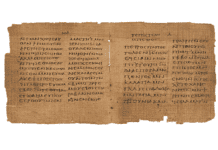After working for Cru (formerly Campus Crusade for Christ) for 45 years, John Sather signed an NDA to facilitate his exit in 2019. He describes the agreement as “suffocating…when the very thing you so desperately want to do is tell your story.” After Cru declined to release Sather from his NDA, he began speaking out against the tactic.
Meanwhile, Cru President Steve Sellers insists that staff-confidentiality guidelines are the norm and that the organization’s NDAs aren’t “designed to silence anyone.” Instead, he says, “We want to protect the location of staff, especially in hostile countries, the privacy of donors, and the privacy of other employees.”
Whistleblowers can report concerns via numerous confidential avenues at Cru, Sellers adds, and all reports are investigated. “I think you should tell the truth all the time, but that doesn’t mean you tell everything to everybody,” he says. Although disclosing abuse is “a moral and legal responsibility,” he says, victim privacy also must be protected.
Ongoing Efforts to Abolish NDAs in Ministry Settings
After the Southern Baptist Convention (SBC) was rocked by a sexual abuse scandal, several denominational leaders began calling for its churches to stop using NDAs. At last month’s SBC annual meeting, Texas Pastor Brad Patterson requested a study of NDAs, which now awaits action from the Executive Committee.
Patterson tells CT he’s not making accusations but is merely concerned about trust and openness among faith leaders. “We will not be able to know the things we need to fix if we’re not able to know about them,” the pastor says. “There have been a lot of changes made in a lot of entities in the last five years, and transparency is important.”
Gospel Coalition editor Joe Carter writes that the “misuse” of NDAs in the Christian community “should motivate us to close the loopholes that allow NDAs to hide misconduct and obstruct justice.” He lists alternatives for organizations as well as individuals. Churches and ministries, for example, can pinpoint specific areas that agreements do and don’t cover. Individuals asked to sign, meanwhile, can request modifications such as Christian conciliation and mediation. “We can glorify God by providing legally bound discretion only so long as it does not require that we cover up sinful behavior,” Carter writes.
Quotes featured on NDAfree.org emphasize that confidentiality agreements favor people in power and stymie the truth. “To cover up sin in the body of Christ is to silence truth and allow a cancer to grow,” says Christian psychologist and victim advocate Diane Langberg. “Jesus, the Light of the World, has called us to speak truth,” she says. “May we, his people, be more diligent in protecting what is eternal and brings joy to the Father’s heart.”











